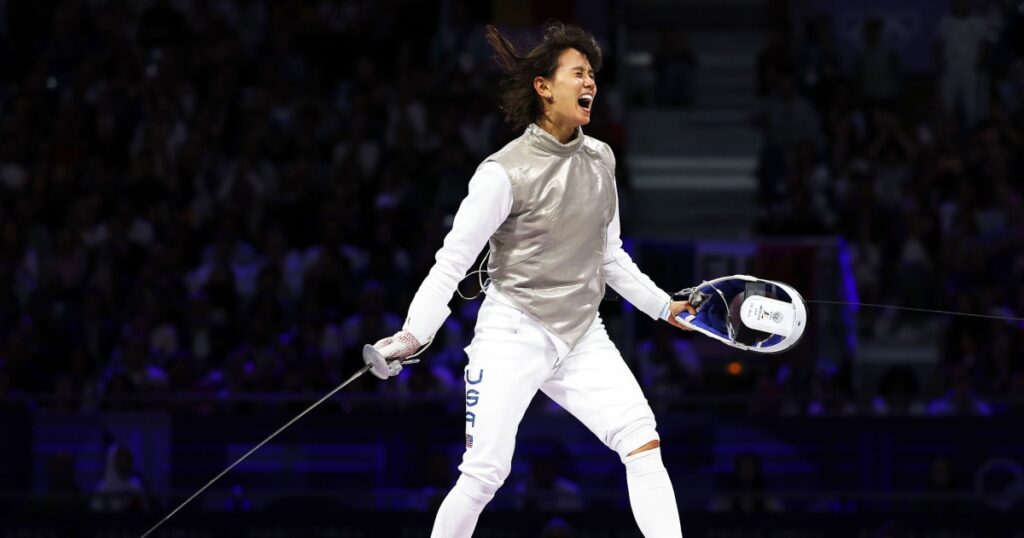For many, medical school and Olympic fencing seem worlds apart. But for back-to-back gold medalist Lee Kiefer, she sees the similarities and beauty in both.
“I treat it, in some respects, the same. There’s always something to learn,” Kiefer, 30, tells TODAY.com. “There’s always something new to think about and it never really gets old. It’s always exciting.”
Training for the Olympics and being in medical school at the same time takes expert level planning. Kiefer tackled both for two-plus years of medical school before taking a leave of absence from school since the Tokyo Olympics in 2021.
“It takes a lot of sleepless days and nights and trying to do your best,” she says. “There’s always going to be a list that’s impossible to complete and you have to get as much done as you can.”
On top of juggling such an intense schedule, Kiefer also learned “to be nice to (herself)” so she didn’t overwhelm herself with too much stress.
While Kiefer returns to the University of Kentucky Medical College following the Paris Olympics, she will begin her third year again.
For now, she’s unsure of what medical specialty she’ll pursue after finishing medical school. But she’s looking forward to being in the same year as husband Gerek Meinhardt, also an Olympic fencer and medical student.
Kiefer feels grateful to have Meinhardt — a two-time bronze medalist — with her in Paris because he truly understands what she’s experiencing. While he didn’t medal in the individual competition, he will participate in the team event.
“It makes it not only more fun, but I also always talk strategy with him,” she explains. “He helps me get into the right headspace.”
Kiefer‚Äôs hard work in training has paid off as she took the gold in women’s individual foil after defeating teammate Lauren Scruggs, who won silver and the distinction of being the first Black fencer to medal as an individual for Team USA.
“I’m feeling great,” Kiefer says. “Honestly, I’m trying to keep the emotions pretty low since I compete in the team event in two days. So, there’s still work to be done.”
Still, she feels optimistic about the upcoming competition. ¬Ý
“We had a practice this morning. My body feels good. So, I feel pretty locked in,” Kiefer says. “My teammates look amazing, too. We’ve put in the work and it’s time to take the test.”
Kiefer hails from a medical family. Both her parents, siblings and even some aunts and uncles are all doctors. Her mom’s a psychiatrist, her dad’s a neurosurgeon, her sister’s an OB-GYN and her brother’s a psychiatry resident. He was able to take a break from residency to watch Kiefer compete in the Olympics, along with many other family members.
“We can probably meet any (medical) needs someone has — hand surgery, plastic surgery, giving birth, mental health,” she says. “Anything, we’ve got you.”
Kiefer’s enjoyed her time in the Olympic village, trading pins and hanging out with other athletes. After finishing her team event, she looks forward to watching others compete.
‚ÄúIt‚Äôs really cool to meet a lot of younger athletes,‚Äù she says. ‚ÄúI have loaded up my schedule. I‚Äôm going to watch gymnastics, skateboarding, volleyball, track and field.‚Äù¬Ý
Peacock is streaming the Paris Olympics around the clock.¬ÝLearn more about accounts here. TODAY earns a commission on purchases. Peacock is owned by our parent company NBCUniversal.
Read the full article here









